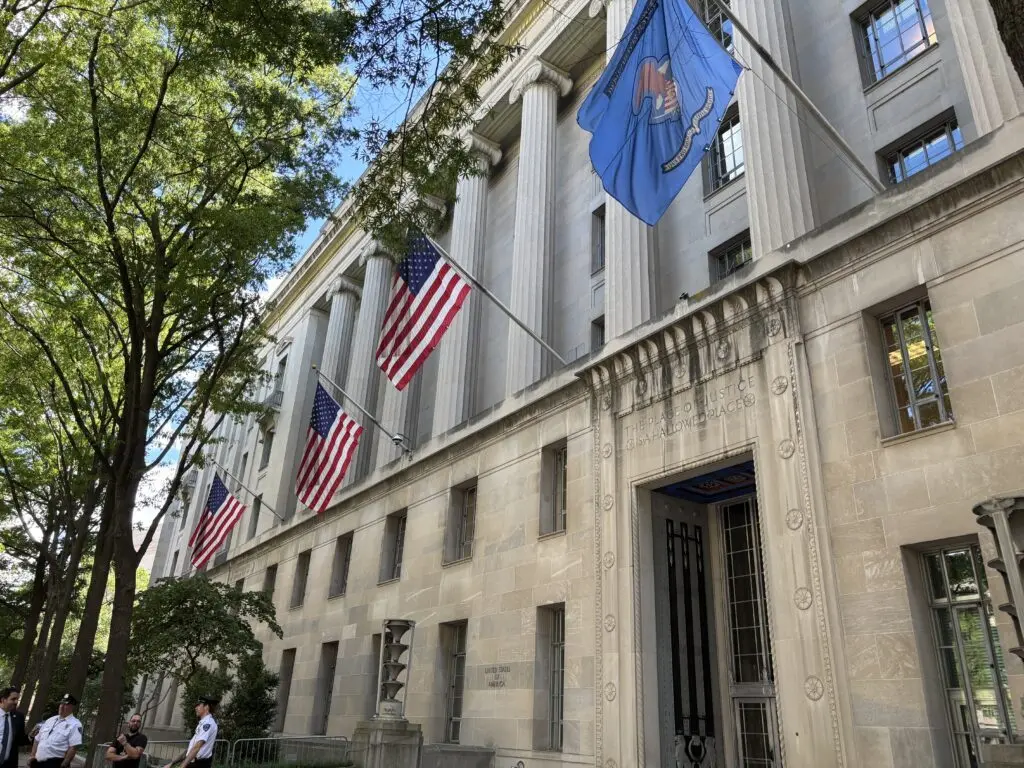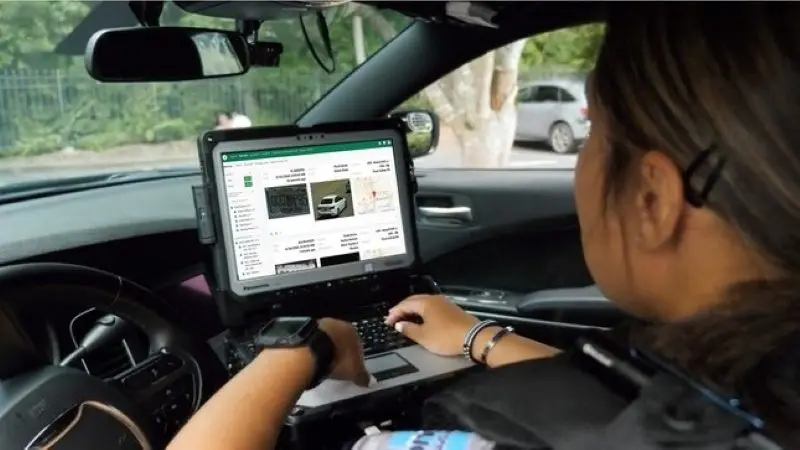WASHINGTON, D.C. – The U.S. Department of Justice is sharing state voter roll information with the Department of Homeland Security in a search for noncitizens, the Trump administration confirmed.
The data sharing comes after Justice Department attorneys this summer demanded that election officials in nearly two dozen states turn over their voter lists, alarming some Democratic state secretaries of state and election experts. They have voiced fears about how the Trump administration planned to use the data. Even some Republican secretaries of state have declined to provide their full voter lists.
Homeland Security in an unsigned statement to Stateline called information sharing essential to “scrub aliens from voter rolls” and said the federal government was “finally doing what it should have all along — sharing information to solve problems.”
“This collaboration with the DOJ will lawfully and critically enable DHS to prevent illegal aliens from corrupting our republic’s democratic process and further ensure the integrity of our elections nationwide. Elections exist for the American people to choose their leaders, not illegal aliens,” the statement reads.
Oregon Secretary of State Read rejects Trump Justice Department demands for voter data
The Justice Department said in its own statement that state voter roll data provided in response to requests from the department’s Civil Rights Division is “being screened for ineligible voter entries.”
Noncitizen voting is extremely rare. One study of the 2016 election placed the prevalence of noncitizen voting at 0.0001% of votes cast.
The data sharing marks a next step in President Donald Trump’s efforts to exert more federal influence over state-administered elections. Trump signed an executive order earlier this year that sought to require individuals to provide proof-of-citizenship documents to register to vote, a rule quickly blocked in federal court. He has also threatened to sign another executive order attempting to restrict mail ballots.
At least 10 states have either provided publicly available data or given the department directions on how to request public data. It’s unclear whether any state has turned over voter data with all information the Trump administration is seeking.
While the administration didn’t describe how Homeland Security will use the voter rolls to search for noncitizens, the agency operates a powerful program, Systematic Alien Verification for Entitlements, or SAVE, that can identify the immigration or citizenship status of an individual.
SAVE was originally intended to help state and local officials verify the immigration status of individual noncitizens seeking government benefits. But U.S. Citizenship and Immigration Services, which is part of Homeland Security, this spring refashioned it into a platform that can scan states’ voter rolls if officials upload the data.
In the past, SAVE could only search one name at a time. Now it can conduct bulk searches, allowing officials to potentially feed into it information on millions of registered voters. SAVE checks that information against a series of federal databases and reports back whether it can verify someone’s immigration status.
Since May, it also can draw upon Social Security data, transforming the program into a tool that can confirm U.S. citizenship because Social Security records for many, but not all, Americans include the information.
As the Justice Department has sought state voter rolls this summer, letters from the department’s attorneys to state officials in many instances have demanded full lists of registered voters that include sensitive personal information such as driver license numbers and partial Social Security numbers. At least 22 states were asked for some data, according to the Brennan Center for Justice at New York University, which is tracking the requests.
Some states have turned over publicly available voter files or offered directions on how to request them. Others have flat-out refused the requests.
“The Department of Justice hasn’t shown any good reason for its fishing expedition for sensitive voter information on every American,” Maine Secretary of State Shenna Bellows, a Democrat, said in a news release Monday announcing that her office had rejected the Justice Department’s second request for her state’s voter data.
Justin Levitt, who served as senior policy adviser for democracy and voting rights in the Biden White House and is now a law professor at Loyola Marymount University, said that he has no confidence that Homeland Security would act carefully with any data received.
Levitt, speaking with Stateline on Wednesday before the data sharing was confirmed, voiced concern that the Justice Department was “serving as a stalking horse” for other entities within the government.
“The fact that they’re having to sneak through the back door rather than knocking on the front door tells you that there’s improper procedures going on,” Levitt said.
Stateline reporter Jonathan Shorman can be reached at jshorman@stateline.org.
This story was originally produced by Stateline, which is part of States Newsroom, a nonprofit news network which includes Oregon Capital Chronicle, and is supported by grants and a coalition of donors as a 501c(3) public charity.
Oregon Capital Chronicle is part of States Newsroom, a nonprofit news network supported by grants and a coalition of donors as a 501c(3) public charity. Oregon Capital Chronicle maintains editorial independence. Contact Editor Julia Shumway for questions: info@oregoncapitalchronicle.com.





